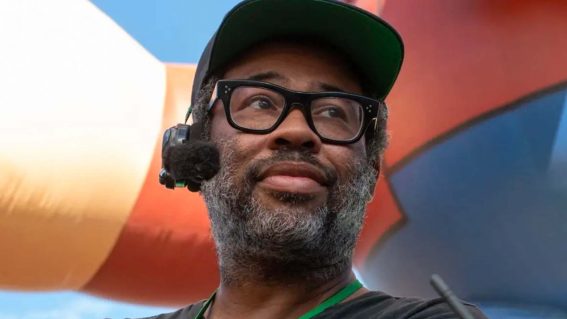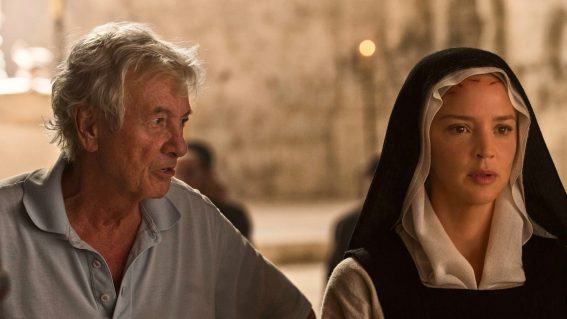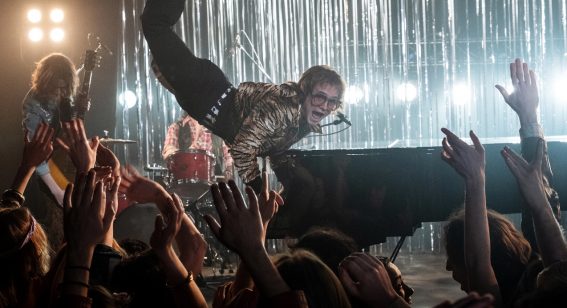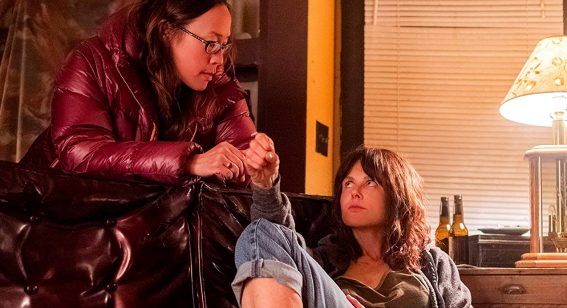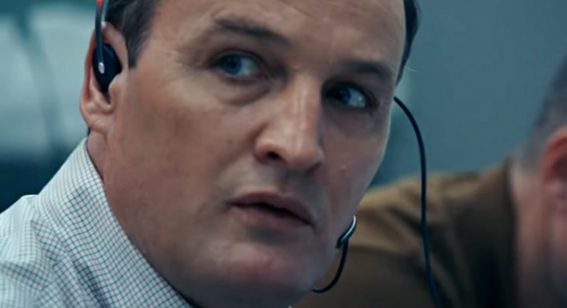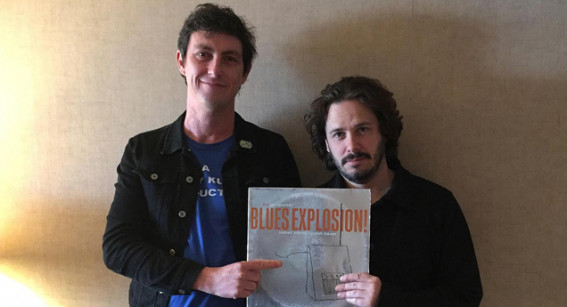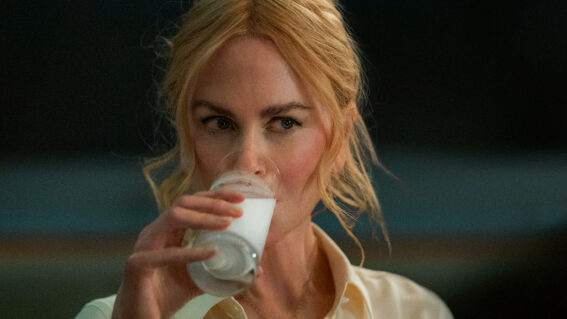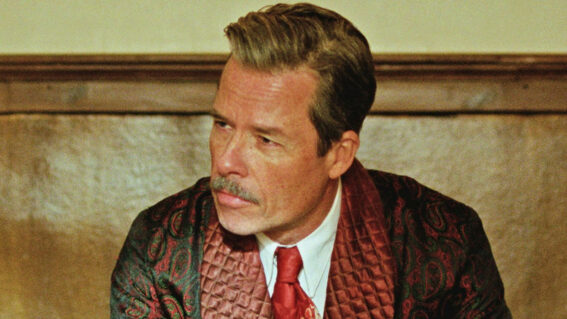Daniel Kaluuya, Keke Palmer and Steven Yeun tell us more about Nope
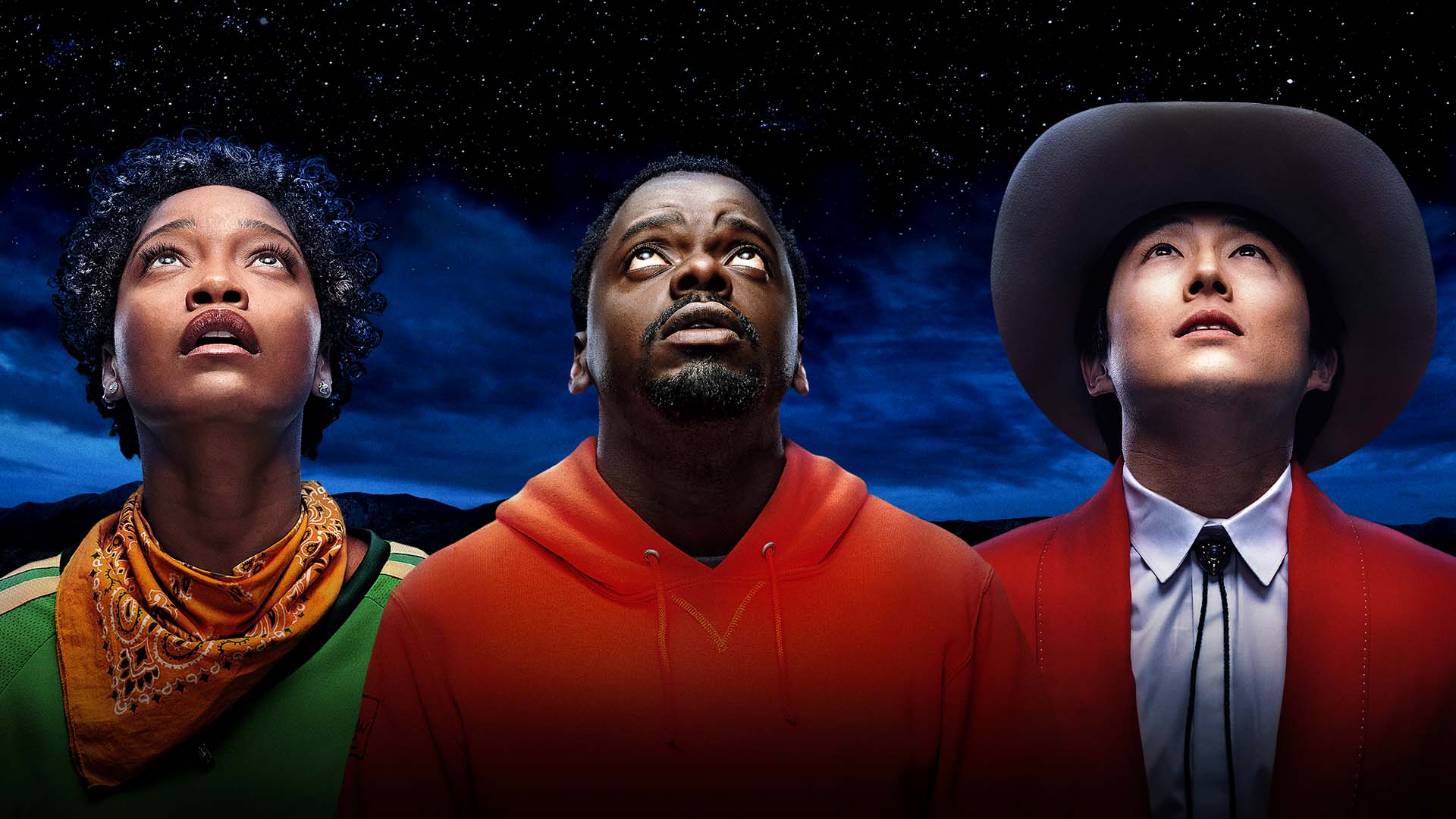
Jordan Peele is back with Nope, the follow-up to Get Out and Us. After hearing from Peele yesterday, now stars Daniel Kaluuya, Keke Palmer and Steven Yeun share more on the film.
Following in the footsteps of King Kong and Jurassic Park as a film with science fiction elements about our culture’s addiction to spectacle, Nope is Jordan Peele’s most ambitious film yet—the first horror to be shot on IMAX. While very much its own movie, Nope is also reminiscent of other blockbuster classics but, as with exactly what unfolds on screen, we’ll let you discover that for yourselves.
INTERVIEWS HAVE BEEN EDITED FOR LENGTH AND CLARITY – AND SOME SPOILERS REMOVED
Who wouldn’t want to work with Jordan Peele (again) on Nope?
DANIEL KALUUYA: I mean, I just felt really blessed, because I just wanted to watch it. So the fact that something arrived to me that I would want to watch, and them asking me to be in it—and it was Jordan, as well, so I’m reconnecting with him, and then you’re doing some genre stuff—it was a challenge, so I really enjoyed it.
KEKE PALMER: Yeah. I felt super blessed—excited to experience working with Jordan in this way with this genre and this kind of character. I really loved what I read on the page of the character that I played, so I was excited to get into it.
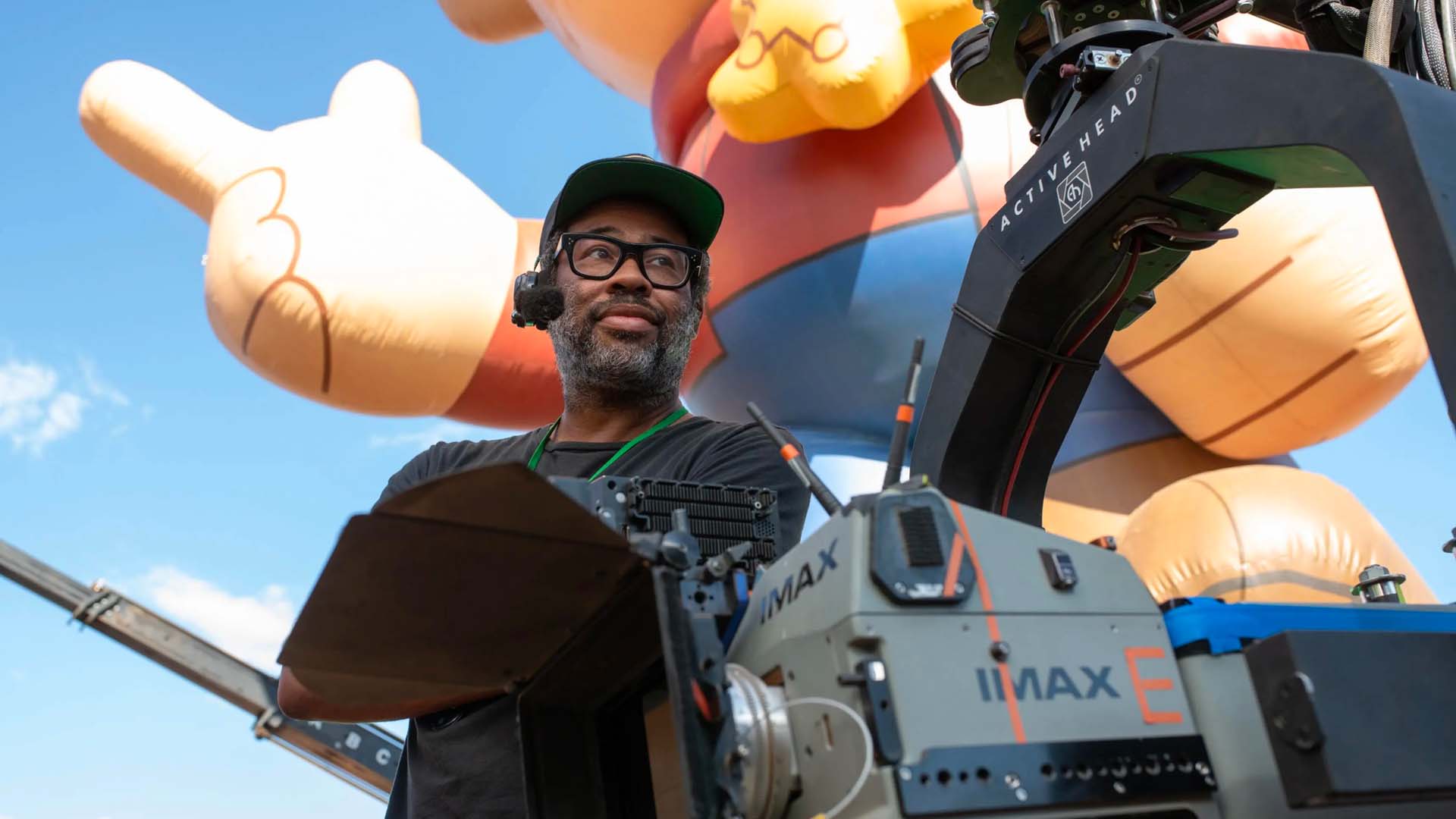
Entering Jordan’s world gets trippy for actors, too
STEVEN YEUN: For me, the thing that I’ve always heard about Jordan’s films is just his attention to detail, and this was just exactly that. Going to [Yeun’s character’s] office, into Jupiter’s Claim, you saw that there was an entire history and a universe of a life lived. The film does not exist in real life, yet memorabilia of that film exists.
And it’s not just crappy knockoff versions; it’s real deep-cut memorabilia. The posters and the photos he would have up on the walls… the writing on the pages… all these little things the production design team did such an incredible job of, and Jordan’s mind really cooked it all up.
When I was in there, I remember looking through all the artefacts, and I was just like, “Oh, this is so trippy.” You can’t tell where the dream begins, and then where the nightmare ends, and it’s just a weird place.
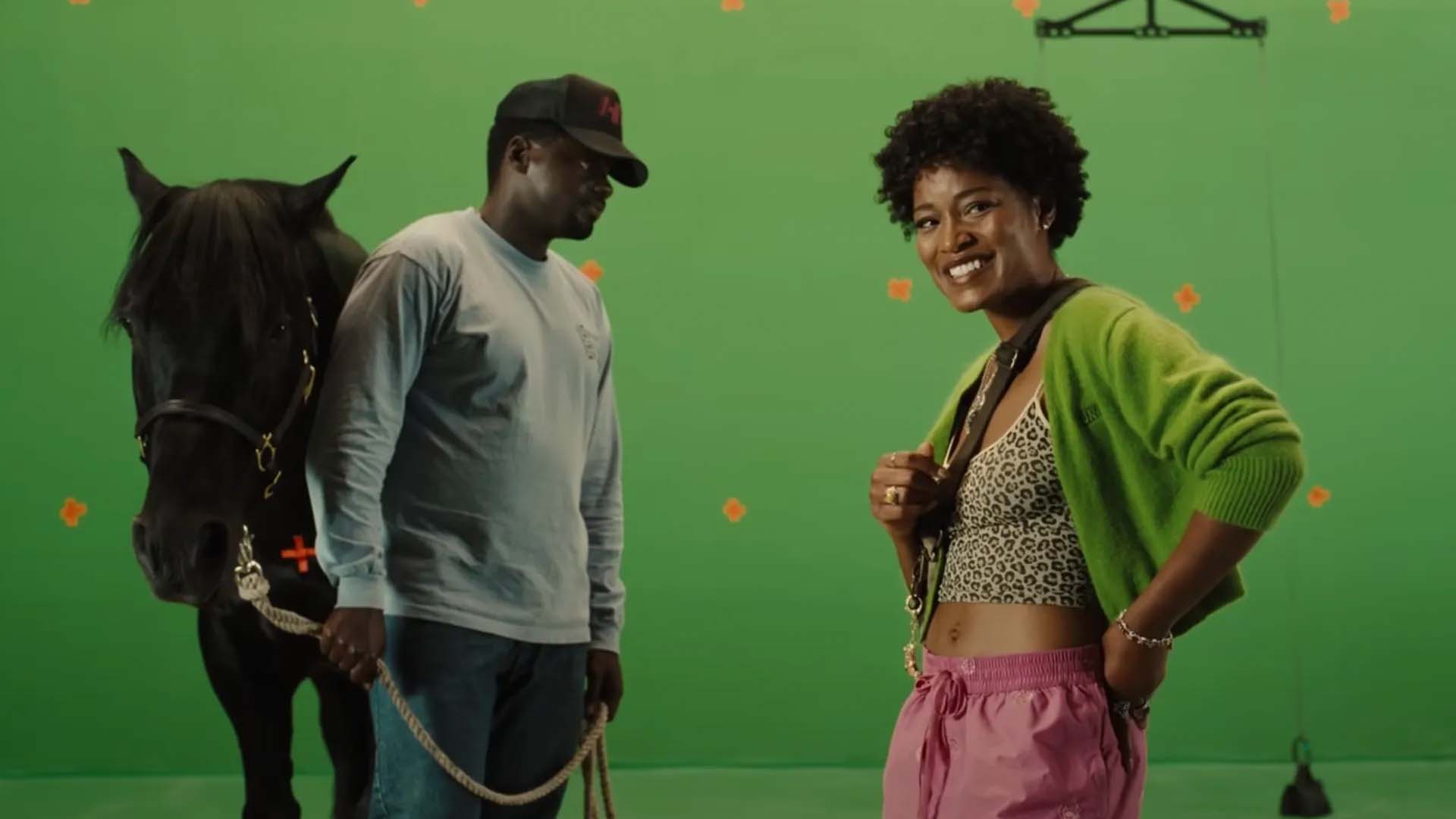
At the heart of Nope is a brother-sister relationship – and the actors sell it
KEKE PALMER: I think that was the easiest part. We have a natural chemistry together, for whatever reason. I just think we vibe out. I love picking on Daniel, he’s the funnest person to try and get out of being calm, because he is so relaxed. So I always like to just mess with them. And I think that’s the same way with [their characters] Emerald and OJ.
DANIEL KALUUYA: It was good, man. Keke’s cool peoples, man. I was a fan of her before we worked. So then when Jordan mentioned that she was a part of it, I was like, “Oh man.” And also, I was just happy that Keke was going to have a moment. I saw that coming. I was like, “Oh yeah”. That makes me happy when I see people that have the thing, get the opportunity to show what they have. So I love that.
Yeun was inspired by Charlie and the Chocolate Factory and… televangelists?
STEVEN YEUN: Well, Gene Wilder’s Willy Wonka was a really special character to examine. The awareness that he holds while he’s also putting on a show is a really fascinating thing to behold. And we looked at a lot of TV televangelists. They have this charisma, but, also, they know what they’re doing. So, yeah, playing within that world was really fascinating.
Nope has an unsurprising streak of humour running through it
KEKE PALMER: It totally does. I mean, Daniel has a really funny moment in the movie when he’s in the car, and he takes a look out to see if he wants to check what’s going on, and he’s just like, “Nope.” I mean, just the deadpan straightness of that line got one of the biggest laughs. And it wasn’t trying to be a funny moment, but it was so funny.
DANIEL KALUUYA: That’s what I loved about the dynamic is it’s the classic straight man/funny woman. Emerald is there running around doing this show and he is just not. And the more that he is not, and the more that she is, the funnier that gets.
I just love that Jordan wrote it in that way. And then I thought what we both did on set is just stretched it even further. Little moments like when you go, “What are you doing?” and I said, “I’m working.” I said, “Do you want to help?” “Nope,” and then she just walks away. I think we made it up on set.
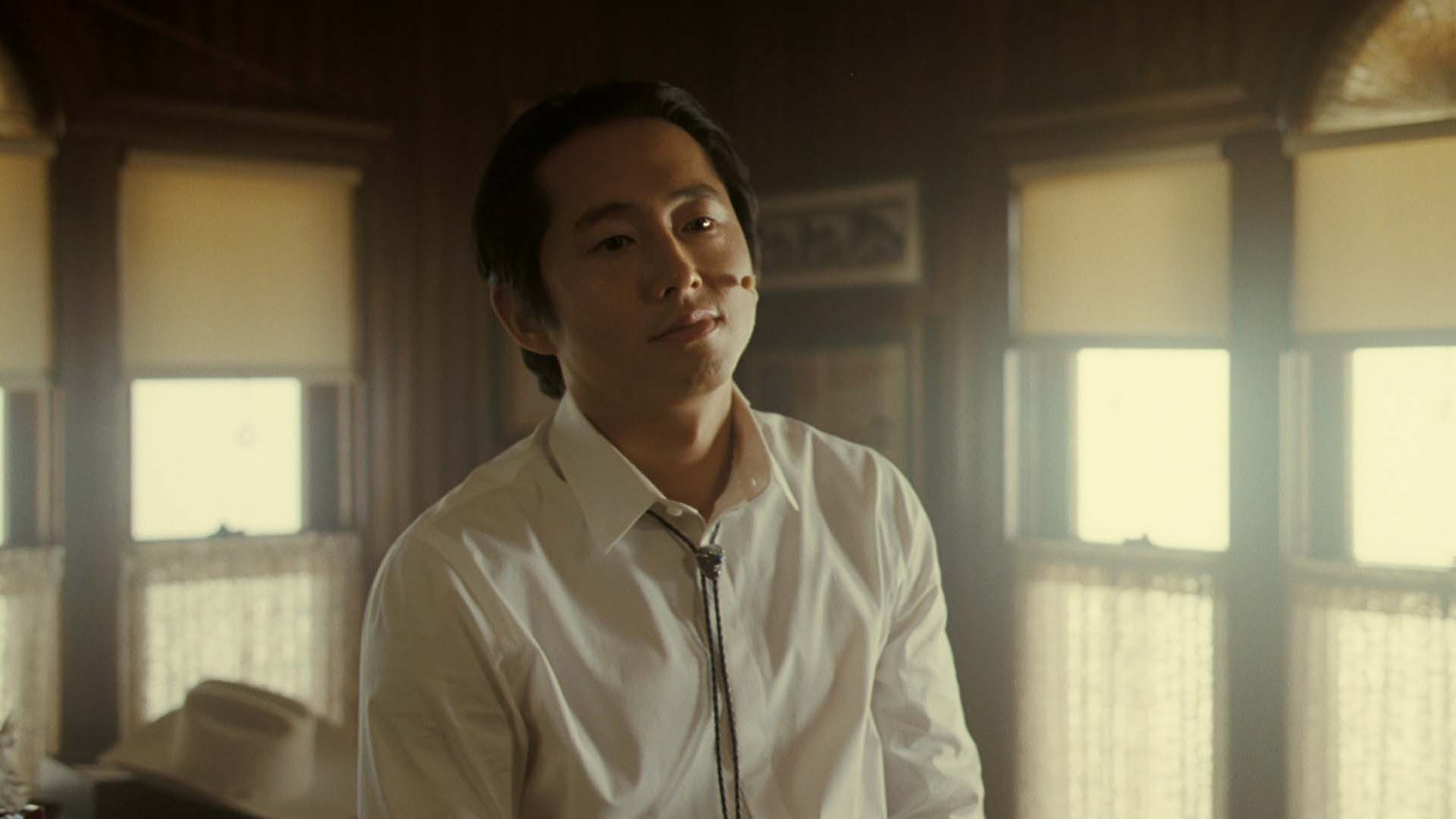
Steven Yeun’s character has a complex history as a child star
STEVEN YEUN: I think Jupe is—and I think all of us, in some way, maybe—slightly infantilised, perhaps, the sum of everyone else’s expectations and projections upon him. I think he’s kind of touching the gaze—the way in which we see each other, the way in which we’re kind of domesticated and trained to respond to the way we’re seeing.
Sometimes that gives us comfort. Sometimes it’s a constant, I guess, rejection of us, to a degree. And then what happens when you’re a child and you’re subject to being a Hollywood star? And then, more specifically, with Jupe, what’s it like when you’re actually not the main character, but you’re one of the side characters? What does that all do?
So there’s many layers to him that I think we all try to touch. But in that way, I think he represents all of us to live in that type of isolation where, maybe, there’s a true version of himself somewhere, but it’s hidden under many layers of other people’s expectations.
These themes of being truly seen (or unseen) Nope resonate with the other actors
KEKE PALMER: It related to me a lot, as a kid, and how I interpret what being seen actually was, as opposed to, actually, truly being seen for who I am. And I think, as it pertains to popularity, fame, and perception, as much as we think those things are like us being seen, especially in the area that we’re in now—fame, popularity—that everybody wants to be seen in that way, but, actually, you become the most unseen in those scenarios, and I’ve learned that first hand. And so I really love how we explore that in the film, because my relationship with being seen has been so different since I did my first big film at 11 years old.
DANIEL KALUUYA: I haven’t thought about this, but I think being seen, in a sense that this game is like… people feel like you can only do what they’ve seen you do. And so then you feel unseen, because that means they didn’t see what you did and see you; they just think that’s you, so then you’re not seen. So I think in that sense that when OJ starts engaging with the way that he thought [spoiler] was, it changed the relationship with it and how much it showed itself. I’m not going to say too much…
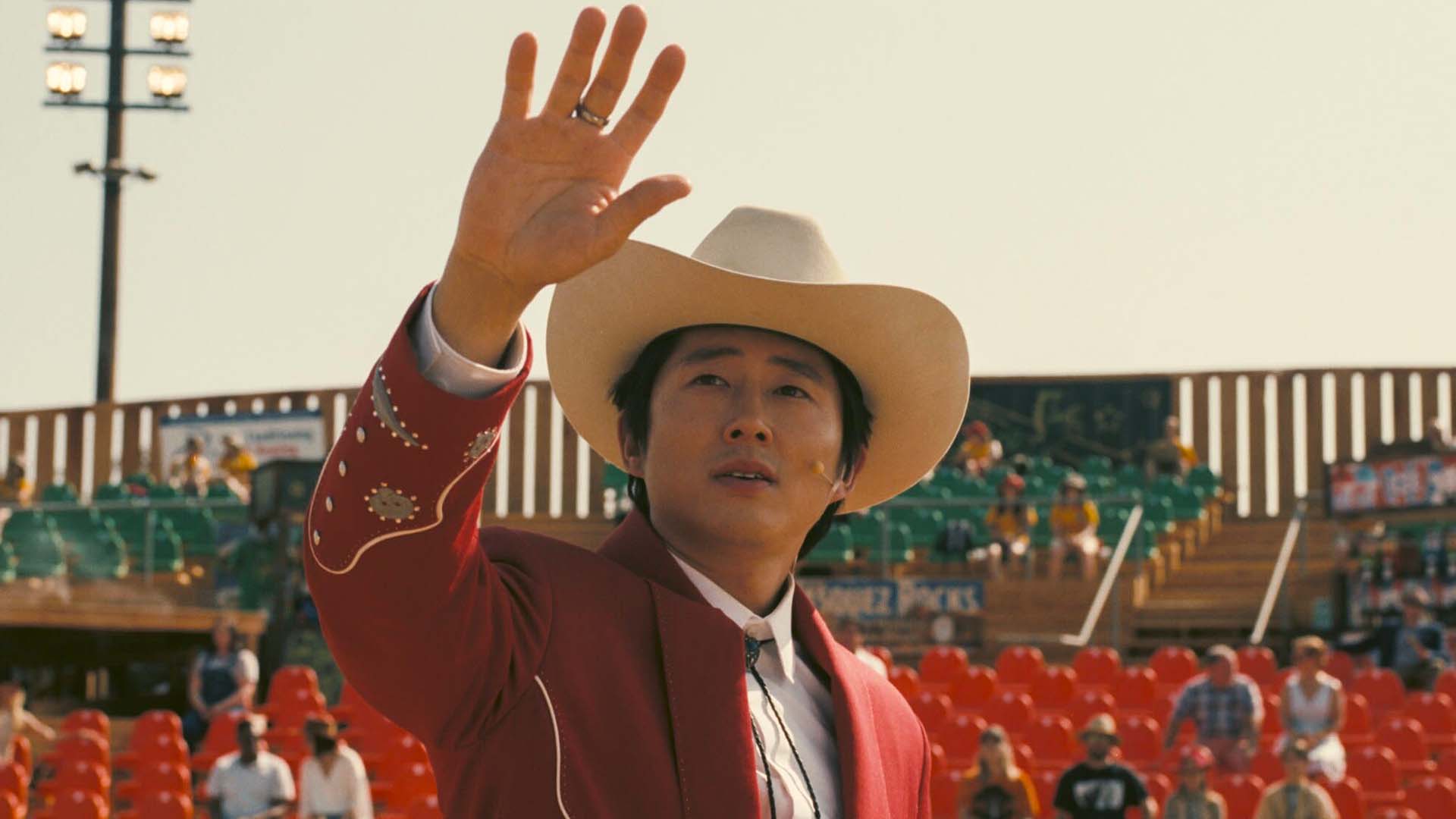
Yes, Steven Yeun, talk about Lee Chang-dong and the great film Burning you did together
STEVEN YEUN: I think what makes a great leader is the ability to have control, but also hold it lightly—to leave space for things to surprise you—for a film, especially, to kind of create itself in the process, as well, with guidance. Most of the directors I’ve ever worked with are like that.
I remember director Lee Chang-dong, who is one of my favourite directors of all time– he told me he was– we were halfway through shooting this movie called Burning that I did. And he was like, “Steven, a movie makes itself.” And I was like, “What?” And then a week later, we shot this scene that we had shot prior that he wanted to shoot again. And this time a flock of geese reflected off the glass. And he was like, “That’s the one.” And I thought “Okay. I guess a movie makes itself.”
He just knew how to be patient and wait for the things that he needed for this film to reveal itself to him. And I think Jordan is that way too. He has a deep awareness and ability to be in control of this chaos. But he really does leave a lot of space open for it to reveal itself and make itself. And that, to me, is a really, really good director.
Would Kaluuya be cool as a cucumber like his character OJ?
DANIEL KALUUYA: If it was [spoiler], I wouldn’t go to them. I’d be coolly walking away. Yeah. I’d be coolly getting a different Airbnb!





